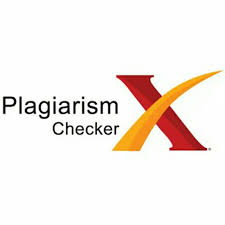Hubungan Pengetahuan Dan Sikap Ibu Menyusui Dengan Pemberian Susu Formula Pada Bayi Usia 6-12 Bulan Di Nagari Lubuk Alung
Keywords:
Attitude, Knowledge, Formula MilkAbstract
Based on the results of RISKESDAS, 2018. The proportion of breastfeeding patterns for babies 0-5 months in Indonesia is 37.3% exclusive breast milk, 9.3% predominant breast milk. Predominant breastfeeding is breastfeeding the baby but giving a little water or a tea-based drink, as a prelacteal food/drink before the milk comes in. Meanwhile, partial breastfeeding is breastfeeding a baby and giving artificial food other than breast milk such as formula milk, porridge or other food before the baby is 6 months old, whether given continuously or as prelacteal food. This research is analytical in nature with a retrospective study research design. This research was carried out from 17 July to 13 August 2019. The population in this study were mothers who had babies aged 6-12 months in Nagari Lubuk Alung, the Sikabu Health Center working area in 2019 with a sample of 34 people. accidental sampling technique. Data processing was carried out using the SPSS program with univariate and bivariate analysis with the chi square test. The results of the research show that there is a significant relationship between knowledge and giving formula milk using the chi square test to obtain a p value (0.079), which means giving formula milk means Ha is accepted. There is a significant relationship between attitude and giving formula milk, the p value is (0.000), meaning Ha is accepted. Based on the results of the research, the author concluded that the low knowledge and attitudes of mothers were due to mothers' beliefs and habits in giving formula milk. The author suggests to health workers to be more active in providing education and understanding to the public about the dangers of formula milk, accompanied by an explanation of the importance of exclusive breastfeeding
References
Ariani, A.P. 2014. Aplikasi Metode Penelitian Kebidanan dan Kesehatan Reproduksi. Yogyakarta: Nuha Medika.
Astuti, Ari.dkk. 2015. Asuhan Kebidanan Nifas dan Menyusui. Jakarta: Erlangga
Budiman dan Riyanto, A. 2013. Kapita Selekta Kuesioner. Jakarta: Salemba Medika.
Dewi.V.N.L.dkk.2011. Asuhan Kebidanan Pada Ibu Nifas. Jakarta: Saalemba Medika
Dinas Kesehatan Provinsi Sumbar, 2014. http://www.dinkes.sumbarprov.go.id. Diakses pada tanggal 19 Juli 2017 pukul 10.59 WIB.
Dinas Kesehatan Kabupaten Padang Pariaman. 2015. Profil Dinas Kesehatan Kabupaten Padang Pariaman Tahun 2015. Pariaman: Dinas Kesehatan Kabupaten Padang Pariaman.
Dinas Kesehatan Kabupaten Padang Pariaman. 2017. Profil Dinas Kesehatan Kabupaten Padang Pariaman Tahun 2016. Pariaman: Dinas Kesehatan Kabupaten Padang Pariaman
Dinas Kesehatan Provinsi Sumbar, LAKIP. 2015.www.dinkes.sumbarprov.go.id. Diakses pada tanggal 12 April 2017 pukul 12.19 WIB.
Harian Media Indonesia. 2012. http://www.asieklusifdancapaiannya.go.id/resuces/ download/capain-asi-eklusif-susu-formula.2012. Diakses pada tanggal 16 Juli 2017 pukul 14.38 WIB
Kemenkes. RI. 2017. Data Dan Informasi Profil Kesehatan Indonesia 2016. Jakarta: pusat data dan informasi KeMenKes RI
Maryunani, A. 2012. Inisiasi Menyusui Dini, ASI Ekslusif dan Manajemen Laktasi. Jakarta: Trans Info Media.
Nirwana, A. B. 2014. ASI & Susu Formula.Yogyakarta: Nuha Medika
Notoatmodjo, Soekidjo 2012. Promosi Kesehatan dan Perilaku Kesehatan. Jakarta: Rineka Cipta
Pawiraharjo, Sarwono. 2011. Ilmu Kebidanan. Jakarta: PT Bina Pustaka
Prapti, R.H.E.2015. Kertas Kajian SRHR dan AGENDA 2030. Jakarta Selatan: Rutgers NPF Indonesia
Profil Kesehatan Indonesia. 2015. http://www.depkes.go.id/resources/download/ pusdatin/profil- kesehatan- indonesia/profil- kesehatan- indonesia- 2015.pdf. Diakses pada tanggal 16 Juli 2017 pukul 14.38 WIB










